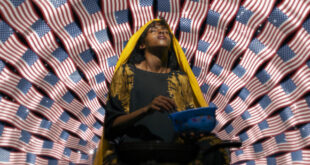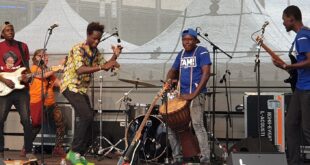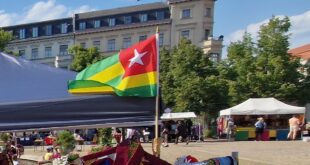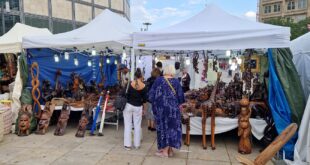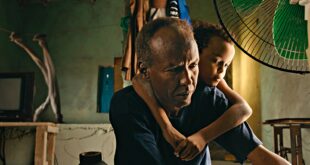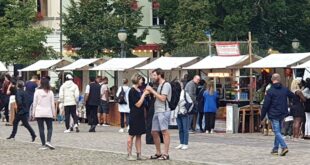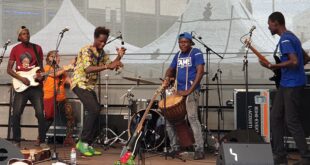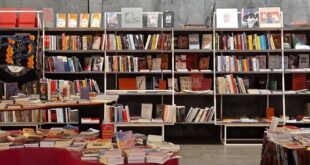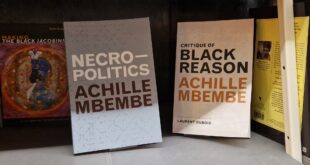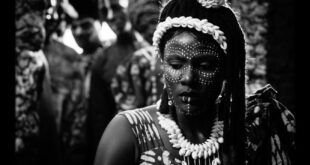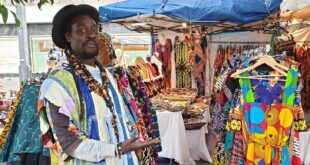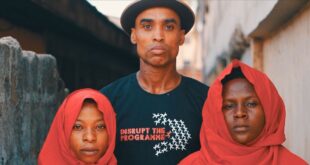Mati Diop’s documentary Dahomey secured the top prize at the Berlin International Film Festival, usually called the Berlinale, on Sunday. The film tackles the themes of colonialism and the return of looted African artifacts to the continent.
The 41-year-old Senegalese-French director’s one-hour documentary follows the 26 priceless artifacts on their 2021 journey from Paris to Benin, where they were originally looted by French forces in 1892.
Thousands of objects were taken away by the French from the Kingdom of Dahomey, which existed in West Africa for around 300 years, from 1600.
Dahomey captures the celebrations in Benin’s economic capital, Cotonou, as these treasures are welcomed back home.
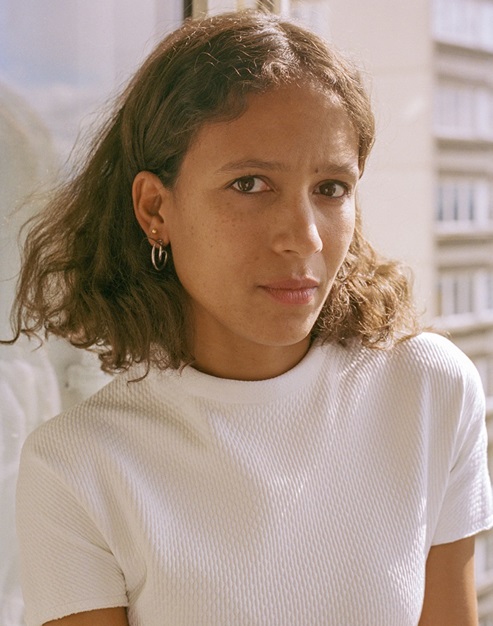
The jury of the 74th edition of the festival, led by the Kenyan actor Lupita Nyong’o (the competition’s first Black presiding judge), awarded the Golden Bear to Mati Diop who had previously won the Grand Prix at the 2019 Cannes Film Festival for her film Atlantics. She became the first-ever Black director to win the festival’s top prize.
“To restitute is to do justice. We can either get rid of the past as an unpleasant burden that only hinders our evolution, or we can take the responsibility and use it as the basis for moving forward. We have to choose,” the French-Senegalese filmmaker eloquently said upon receiving the prize.
However, the film also raises serious questions about the fate of the thousands of objects that still reside in French museums. Diop said the hoard of 26 artifacts returned to Benin were “way too few compared with the 7,000 works that are still held captive in these museums”.
“These 26 works are good but are not enough, and I certainly think that it is humiliating […] France has exploited this place for centuries,” she said.
The film comes at a time when many European museums are being pressured to return looted cultural treasures. In the past three years, institutions in the UK, Germany and the US have begun to repatriate Benin Bronzes.
This unexpected triumph of Dahomey at the 74th Berlinale surprised many as it outshone the works of better known directors.
Diop was born in Paris, France, and is a member of the prominent Senegalese Diop family. Her father, Wasis Diop, is a Senegalese musician and her mother, Christine Brossard, is an art buyer and photographer. She is the niece of prominent Senegalese filmmaker Djibril Diop Mambéty. During her childhood she often travelled back and forth between France and Senegal, developing a transnational identity.
The Berlinale is a major international film festival held annually in Berlin. Founded in 1951, it is one of Europe’s “Big Three” film festivals alongside the Venice Film Festival held in Italy and the Cannes Film Festival held in France. Furthermore, it is one of the five most prestigious film festivals in the world and it regularly draws tens of thousands of visitors each year.
Vivian Asamoah
 THE AFRICAN COURIER. Reporting Africa and its Diaspora! The African Courier is an international magazine published in Germany to report on Africa and the Diaspora African experience. The first issue of the bimonthly magazine appeared on the newsstands on 15 February 1998. The African Courier is a communication forum for European-African political, economic and cultural exchanges, and a voice for Africa in Europe.
THE AFRICAN COURIER. Reporting Africa and its Diaspora! The African Courier is an international magazine published in Germany to report on Africa and the Diaspora African experience. The first issue of the bimonthly magazine appeared on the newsstands on 15 February 1998. The African Courier is a communication forum for European-African political, economic and cultural exchanges, and a voice for Africa in Europe.


